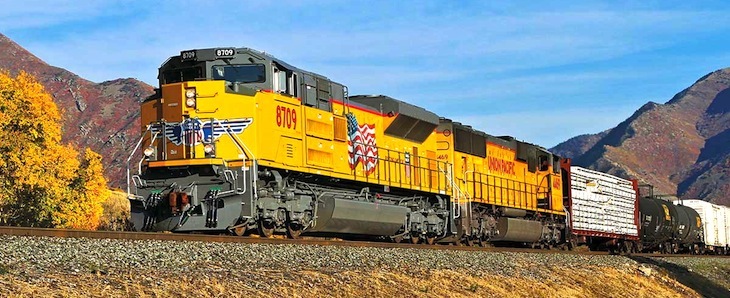A railroad strike would disrupt economy, push fuel prices higher; but Congress could act
by September 14, 2022 5:37 pm 993 views

A potential strike by union workers of railroad companies would cause such significant economic disruption – an estimated $2 billion a day in losses across many sectors – that analysts with Little Rock-based Stephens Inc. believe Congress will act to prevent strikes.
Strikes among rail employees could make the supply chain disruptions of the past few years look like a walk in the park, and would likely make inflation worse, especially with fuel prices. The Association of American Railroads (AAR), a trade group that works on behalf of railroad companies, said strikes could cost more than $2 billion a day.
Negotiations between railroad companies and unions have been underway for months, with unions saying they will call for strikes beginning Friday (Sept. 16) morning. Some unions have reached tentative agreements as of Wednesday (Sept. 14). The International Association of Machinists and Aerospace workers rejected an agreement, but did agree to delay a strike until Sept. 29.
A Presidential Emergency Board (PEB) recommended by President Joe Biden in his effort to avoid strikes would provide workers a 22% wage increase during a 5-year contract term and $5,000 in “service recognition bonus payments.” AAR President and CEO Ian Jefferies said the PEB would on average provide workers a payout of $11,000 upon contract ratification. The AAR and railroad companies have agreed to the PEB terms.
“Failure to act could idle more than 7,000 trains daily and trigger retail product shortages, widespread manufacturing shutdowns, job losses and disruptions to hundreds of thousands of passenger rail customers,” the association noted.
Don’t look to the trucking industry to make up for idled trains.
“Idling all 7,000 long distance daily freight trains in the U.S. would require more than 460,000 additional long-haul trucks every day, which is not possible based on equipment availability and an existing shortage of 80,000 drivers,” noted American Trucking Associations President and CEO Chris Spear. “As such, any rail service disruption will create havoc in the supply chain and fuel inflationary pressures across the board.”
Bentonville-based Walmart declined to comment on the potential disruption to its operations, and instead directed media to the National Retail Federation (NRF). The NRF said potential disruptions would hit just as the U.S. retail sector is gearing up for the holiday shopping season.
“The timing coincides directly with peak shipping season for the winter holidays, and a rail strike at this juncture would be just one more significant, inflationary shock to an economy that is already reeling from historically high inflation,” NRF President and CEO Matthew Shay said in a statement. “Freight rail is critical to the retail supply chain, and retailers of every size rely on it to move cargo every day. Retailers are deeply concerned about the situation and the impact that a disruption would have on business operations throughout the country.”
Springdale-based Tyson Foods also declined comment and directed the media to the National Chicken Council.
“Our members rely on about 27 million bushels of corn and 11 million bushels of soybean meal every week to feed their chickens. Much of that is moved by rail. Any disruption of service could negatively impact the welfare of the birds, and ultimately impact production at a time when Americans are already dealing with record food inflation. We are urging a swift resolution to this issue,” Tom Super, spokesman for the National Chicken Council, said in a statement.
Fort Smith-based ArcBest, one of the nation’s largest shipping and logistics operators, has a network of 80,000 contract carriers ready to respond.
“We’re closely monitoring this situation and are actively working with our customers who could potentially be impacted to minimize that as much as possible. … Our operations teams have contingency plans, and we’re communicating to our front-line employees and directly with customers so we’re as prepared as possible to help them navigate or avoid disruptions in their supply chains,” the company noted in a statement.
Justin Long and Brady Lierz, an analyst and associate, respectively, with Stephens, said as of Sept. 9 five of the 12 labor unions have agreed to the proposed PEB contract terms, and said Congress would likely block the other unions from striking.
“We continue to see this as a low probability event, and would note the American Association of Railroads (AAR) issued a press release this week estimating that a strike would cost the U.S. economy $2 billion per day. Given this potential macro impact and the increased level of focus on rail service from the regulators/government, we believe it is likely that Congress will intervene if an agreement is not reached in the next week,” Long and Lierz wrote in their Sept. 9 industry note.
However, Amtrak on Wednesday said it will begin Thursday to cancel long distance trips. The National Grain and Feed Association reported Wednesday that some grain and other agri rail shipments will be halted beginning Thursday as some railroads begin to prep for a potential strike.
